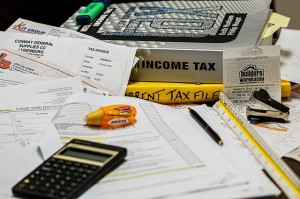You have recently acquired your first rental investment. Or you are about to do it, but you have doubts about the taxation associated with this new world. Indeed, what is the point of having additional income in the form of rents if these are entirely or largely absorbed by your taxes? Today’s article aims to enlighten you on this subject, in the case of an investment in bare rental, also called empty rental. This term is opposed in particular to furnished rental, where the owner offers a ready-to-use property including a bed, table, chair and other furniture. We will mainly discuss what are the deductible expenses that you can remove from your income when you file your tax return.
But first, let’s start with the basics. When you go to declare your rental income, you will have the choice between 2 options:
It is to these deductible expenses that we will focus today. This will allow you to know what you can simply deduct from all of your rental income. As we will see, declaring in real terms can quickly become much more interesting than a fixed-price declaration…
Whether or not you borrowed to purchase your rental apartment, you can de facto deduct a certain number of costs inherent in your investment. I say apartment, but it is obviously also valid for a parking lot, a garage, a house or a building. The general logic is as follows: all the expenses you incur for your rental investment can be deducted from your cash inflows on this same investment . In particular, you will be able to deduct from your income:
The list should not be far from exhaustive, the important thing being to remember the principle: if you spend money on your property, you can deduct it from the rents it earns you when you declare your taxes. .
Good news for people who have invested on credit, the list of deductible expenses is growing! To those already mentioned in the previous paragraph, you can add:
I have probably forgotten some, but this should already allow everyone to form their first opinion on the subject and to consider its imposition from a new angle.
There is of course not only one answer to this question, so the easiest way is probably to do the calculation yourself. One thing is certain: if you have borrowed all of the sums associated with your investment, it is very likely that declaring your rental income on an actual basis will be much more advantageous than declaring it on a flat-rate basis. And this is probably true for at least the first part of your credit. Do the math, you’ll see for yourself.
In any case, as presented in this article, a certain number of fees and costs can be deducted from your rental income if you opt for a real declaration. Think about it well before declaring your taxes, it would be a shame not to take advantage of these deductible expenses and thus pay taxes that you would not necessarily have had to pay…


